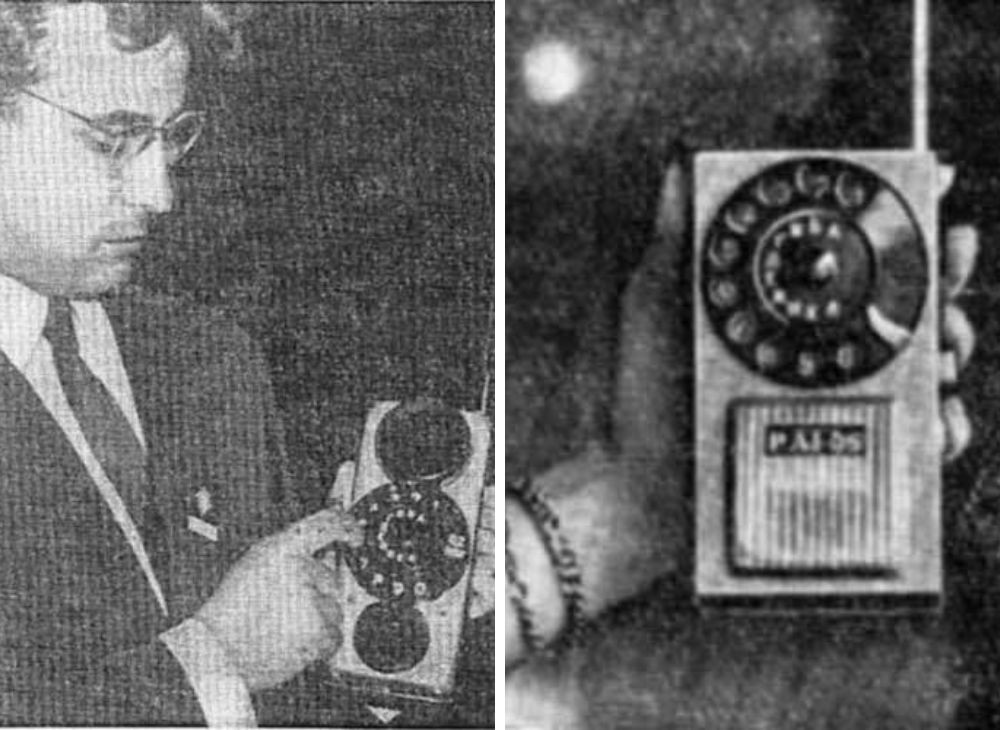At the height of the Cold War, there is a race between the Eastern and Western blocs - economic, military, ideological and, above all, technological. At that time, intensive scientific, engineering and inventive activity was boiling in Bulgaria, which benefited from the stable support of the communist authorities.
The year is 1964. At the Research Institute of Electrical Industry, the talented Bulgarian scientist Eng. Hristo Bachvarov - author of a bunch of inventions in the field of electronics and radio broadcasting - created a true miracle - a portable hand-held telephone from which one could connect with whoever, wherever! Engineer Bachvarov even personally installed such a device not anywhere else, but in the car of the then Bulgarian head of state Todor Zhivkov. And he admited that he assembled his first experimental phone from a completely ordinary... soap dish.
Thus, almost two decades before the first mobile phone developed in the USA would conquer world markets, ushering in a new technological era, the Bulgarian-born RATC-6 came into existence in the world quite unobtrusively:
“The GSM standard was developed after 1982 and was patented in 1991. At the time when our mobile phone appeared, radio telephones developed abroad were either simple portable stations or small transistor radio receivers with a limited range that could only be used for incoming calls. But with RATC-6, every home subscriber could choose the number of the carrier of the portable device, i.e. the Bulgarian phone could be used both for incoming and outgoing calls," explains Anton Orush - researcher, collector of Bulgarian equipment and creator of the website sandacite.bg.
RATC-6 had the dial typical of its generation. A metal mesh was placed under it, under which a combined microphone-speaker was hidden. Before starting the call, one had to simply put out the telescopic antenna, about 30 cm long, dial and there you go! “The device can also be powered by the car's battery. In its portable version, it fits into a bag as big as an amateur camera," says Anton Orush and adds:

"This is a small wireless apparatus equipped with a miniature radio transmitter that broadcasts to a special device mounted either on the city telephone exchange or on a separate telephone exchange. The RATC-6 device receives the radio waves, converts them into electrical impulses and connects you to the telephone subscriber.
RATC-6 caused a real sensation during the specialized international exhibitions Inforga'65 and Interorgtehnika'66 in the USSR, where it was presented as a means of communication between those working in the construction and energy sectors. Towards the middle of the 1970s , a testing complex with equipment for a national system of mobile connections was already built in Bulgaria. But after 1977, the work in this direction suddenly stopped. Why?
"Sometimes it happens that in order to introduce a new product into production, it is necessary to carry out reconstructions, which are difficult to implement in practice. And that's one of the reasons why only very few such phones manufactured. But there is another reason, as well. After the certification of this invention, it was classified, and the work on building a national mobile communications system was suspended because the military showed interest in the device. It is not known whether this phone was not used for military purposes”, Anton Orush says in conclusion.
Prayer served by His Holiness Bulgarian Patriarch Daniil on February 22, marks the beginning of the celebrations for the consecration of the new church "St. John of Rila" of the Bulgarian Orthodox community in London. For the..
"Thracians, Wine and Culture" is the theme of a seminar at the archaeological complex "Valley of the Thracian Kings" near Kazanlak , which brings together scholars and researchers from all over Bulgaria on February 22. This is the ninth edition of..
Help me do it myself, get me in touch with nature, take care of my immunity – these are the principles that the teachers at the Bulgarian kindergarten "Hristo Botev" in the Slovak capital Bratislava follow. The kindergarten has been operating since 2009..
Exactly 3 years ago, on February 24, Russia’s invasion of Ukraine began – an event that woke up Europe 77 years after the end of World War II and called..

+359 2 9336 661
